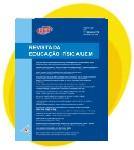Effects of physical exercise for adults with intellectual disabilities: a systematic review
Abstract
Literature presents the benefits of physical activity programs for people with intellectual disability (ID), but aspects such as those related to physical exercise prescription, benefits of the type of exercise program, most recommended exercises, load control, limitations of the interventions for adults with ID are subjects awaiting scientific research. The aim of this study was to verify, through a systematic review, the effects of physical activity programs for adults with ID. The procedure included an electronic search of the literature published from January 1960 to August 2014, considering terms related to physical activity, ID and physical activity program. Eight manuscripts met the eligibility criteria and were included in the study. Based on the systematic review, we found a limited number of studies that investigated, in a structured way, the effect of physical activity programs for adults with ID. In general, the systematized programs of physical exercise promoted consistent and significant benefits for adults with ID. However, there seems to be no consensus on the type of intervention to be used to promote the practice of physical activity in adults with ID. In addition, the methodological quality of the studies appears to be limited. We conclude that intervention studies with physical activity in adults with ID that involve aerobic exercise, sports specialization and a combination of muscular and aerobic exercise performed two or three times a week for more than 40 minutes seem to be the most recommended for adults with ID.
Downloads
Metrics
• Authors retain the copyright and full publishing rights without restrictions.

This work is licensed under a Creative Commons Attribution 4.0 International License.













_1502.jpg)











